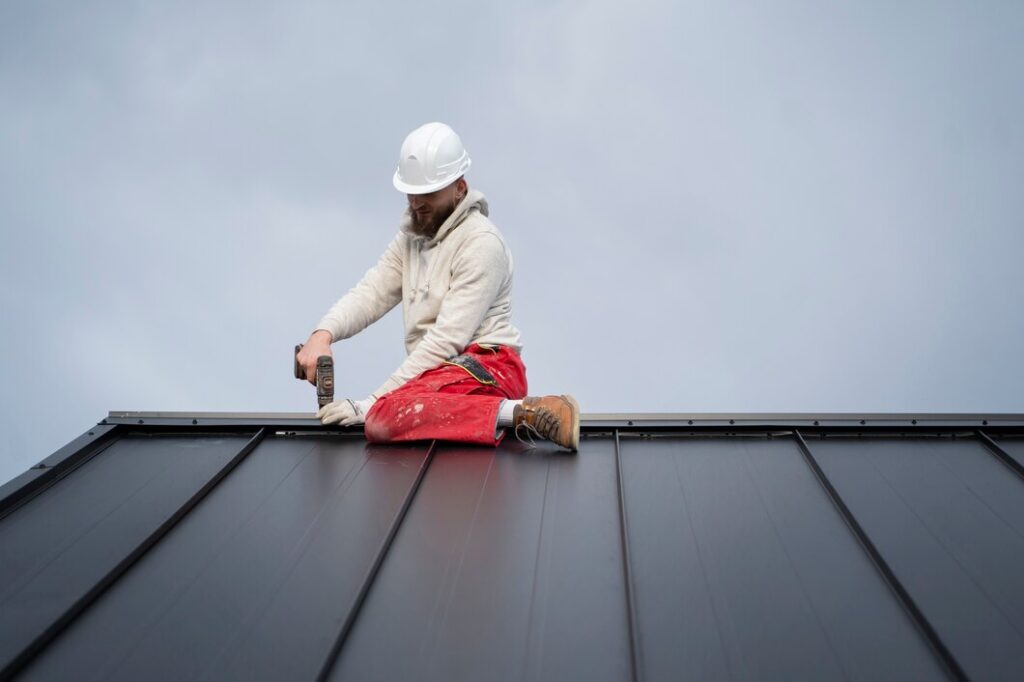Replacing a roof is a significant investment for any homeowner. Understanding the costs involved can help us make informed decisions and avoid surprises. Knowing what factors affect the cost of roof replacement helps in planning and budgeting. It’s essential to consider various elements such as materials, labour, and potential hidden costs to ensure we are fully prepared.
Several factors influence the overall cost of a roof replacement. From the type of roofing material to the complexity of the job, all these aspects play a role in determining the final price. It’s important to understand these factors so we can choose the best options for our homes while staying within our budget.
By taking the time to research and understand the expenses associated with roof replacement, we can manage our finances more effectively. Proper planning and budgeting ensure that we get the best value for our money, leading to a successful roof replacement project that lasts for years to come.
Factors That Affect Roof Replacement Costs
Several factors can influence the overall cost of replacing a roof, and understanding these can help us plan better. One of the primary factors is the size of the roof. Larger roofs require more materials and labour, which increases the cost. The complexity of the roof design also plays a significant role. Roofs with multiple angles, slopes, or intricate designs often take more time and skill to replace, leading to higher costs.
The condition of the existing roof is another key factor. If there is significant damage, such as rotting wood or extensive water damage, additional repairs may be necessary before the new roof can be installed. These repairs can add to the overall cost. Additionally, the type of roofing material we choose plays a crucial role in determining the price. Some materials are more expensive than others, and some require more specialised installation techniques, both of which can impact the overall expense.
Understanding Material and Labour Expenses
Materials and labour are the two main components of roof replacement costs. The choice of roofing material significantly affects the total price. Asphalt shingles are usually the most affordable option, but other materials like metal, tile, or slate can be much more expensive. Each material also has different lifespans and levels of durability, which should be considered when choosing the right one for our home.
Labour costs depend on the complexity of the job and the experience of the roofing contractors. More complex roofs or those needing significant repairs will take longer to replace, increasing labour costs. It’s also important to consider the quality of workmanship. Experienced and highly skilled workers may charge more, but they often provide better quality work, leading to a roof that lasts longer and performs better.
By understanding these material and labour expenses, we can make more informed decisions and ensure that we are getting the best value for our roofing investment.
Hidden Costs to Consider During Roof Replacement
When planning for a roof replacement, it’s essential to be aware of potential hidden costs that may arise during the project. Unforeseen expenses can quickly add up, so it’s important to budget for these possibilities. One common hidden cost is the need for additional materials. Once the old roof is removed, we might discover that the underlying structure or decking has suffered damage and needs repair or replacement.
Another hidden cost can come from permits and inspections. Many areas require homeowners to obtain permits before starting a roof replacement, which entails fees. Additionally, professional inspections might be necessary to ensure that the new roof meets local building codes and regulations, adding to the overall expense.
Labour costs can also vary depending on the complexity of the roof design and unexpected challenges like working around chimneys or skylights. By accounting for these potential hidden costs in our budget, we can avoid unpleasant surprises and ensure a smooth roofing project.
Tips for Budgeting Your Roof Replacement Project
Budgeting for a roof replacement project requires careful planning and consideration of all potential costs. Here are some tips to help manage your budget effectively:
- Get Multiple Estimates: Obtain quotes from several roofing contractors to compare prices and services. This helps us find a competitive price and ensures we are getting value for our money.
- Plan for Contingencies: Set aside a contingency fund for unforeseen expenses, such as hidden damage or extra materials. A good rule of thumb is to allocate an additional 10-15% of the total project cost for unexpected costs.
- Research Materials: Understand the cost differences between various roofing materials. While higher-quality materials might have a higher upfront cost, they could offer better durability and lower maintenance over time.
- Consider Timing: Schedule the roof replacement during the off-season or when contractors may offer better pricing due to lower demand. This can help in getting a better deal without compromising on quality.
By following these budgeting tips, we can plan our roof replacement project more effectively, ensuring that we stay within budget while achieving a durable and reliable new roof.
Conclusion
Replacing a roof is a significant task that requires a clear understanding of various costs involved. By knowing what factors affect roof replacement expenses and being aware of potential hidden costs, we can plan and budget more effectively. It’s also crucial to understand material and labour expenses to make informed decisions.
A well-planned budget gives us the flexibility to handle unexpected issues and ensures a smoother roofing project. For expert advice and high-quality Kingston roofing services, contact Full House Roofing. Let us help you navigate your roof replacement needs with confidence and expertise.

